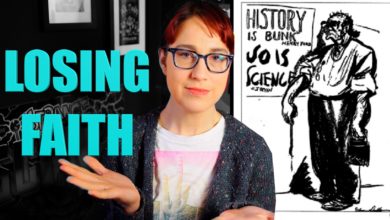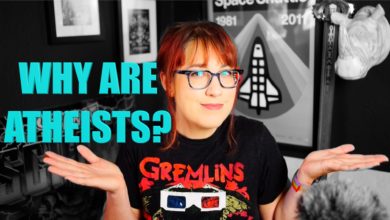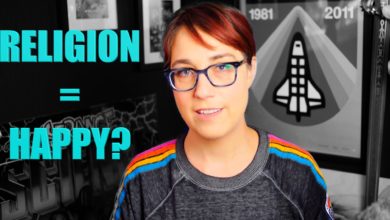To Reflect is Also Human
Today I want to talk about beauty and inspiration.
I’m not sure how I arrived at this place today, but I think it is due in part to the thoughts of this young lady. Splendid Elles, as she is known online, has inspired me to collect thoughts about religion and spirituality I’ve visited many times before, and include them here. I hope you will indulge me.
You see, I’m at an enviable point in my life now where I can appreciate beauty on many different levels, and not only can I appreciate it on different levels, but I seek it in its various forms.
When I look, I find it in the universal truths, the deep-rooted desires, the fears, and the joys of the human condition when they are expressed with eloquent language. There is a beauty in that, which is what art tries to convey. Thankfully it is quite often successful.
I find it in the vista of the land around me and in the darkness of night illuminated by the billions of galaxies with which we share the cosmos. I find it in natural formations and in architecture. I find it in music and I find it noise. I find it in things in motion and in inanimate objects.
I find it where it is dictated by the power of lust; in a fine car, a magnificent home, or even an expensive pair of shoes. And I see it the curves and softness of a woman, in the flowing tresses of her hair, in the rise and fall of her bosom, in the feel of her breath on my skin, and in the smell of her body lying next to mine.
I’ve come to a place where I recognize the different types of beauty in this life, and I marvel at the disciplines that examine their creation. I’m fascinated by the discoveries of biology, astronomy, physics, geology, archeology, chemistry, and medicine. I see the beauty they describe, but still have no control over it. I am at once bubbling with understanding and simmering with confusion. And I don’t know that it will ever be any different. I’m not sure I want it to be. I’m fairly certain I don’t.
But there are elements loose in the world that would devalue the understanding, that would deride the wonderful confusion, that would invent myths about reality, that would cheapen the beauty, reducing it to merely the fanciful stage of a meddling architect.
Early in my life I was ensconced with those elements by an accident of birth, and I very well could have remained among their number. But as I matured, I discovered that the beauty of everything around me could not be matched by the childish stories nor created by the impotent characters from the attendant myths. They are pathetically inadequate, and any man who would claim his particular wizard, fairy, or bogeyman as the source for all the beauty that can be experienced is very simply selling the universe short.
The true source is the natural process of the cosmos. There is no all-seeing magician borne of primal fear and ignorance that can amaze to the same extent. There is no godhead that can inspire, that can shake us to the very core, the way that reality can. That is a type of inspiration for which only nature has the talent.
It comes in the form of the ocean, as it licks at the shore, getting a taste, and then retreating for other parts of the world and other tastes. It’s woven into the majestic mountain ranges and the wonders of hills and canyons. It thrives in the flatlands and deserts, and of course flourishes in the vastness of space.
It’s inspiration that stems from the countless creatures on land and in the sea the world over, caught in the simple yet supremely difficult struggle to draw another breath, each bound by the mechanisms of chance and evolution, each part of an existence that is over in the geological blink of an eye. Yet the brevity of that existence is not something to be feared, but a marvel to be celebrated and anticipated with wonder as well.
It’s inspiration that is found in the faces of children and the elderly, and it surges through the idea that though we are many, at this time in our history, we are basically alone, and it is in our best interest to realize how rare and precious we really are.
I look at Machu Picchu, the great Pyramid of Giza, the city of New York, the tropical paradises on this globe. I read amazing works of literature and I see passion set down on canvas and in plaster. I walk through the history of this planet in a museum, smelling the funeral pyres of countless generations and hearing echoes of a warrior’s prayer before the battle against oppression begins. And when I see these things, I know that as amazing as they are, they come from us. We are the sole force that guides our destiny, and there is something very liberating in that. And something very inspiring.
But there is even more that is too grand for the pedestrian contrivances of mysticism. There is even more that the magical denizens of the ether cannot touch.
How does a man understand the inspiration that stems from love? How can a man explain the heights to which his spirit soars simply because a pretty girl smiles at him and says “I love you, too.”? How does a man explain the lengths to which he goes for the object of his desire? How does a man relate the power that may cause him to bear a thousand harsh trials to obtain a material object or even a loving companion? And how does a man reconcile the evil that he’s capable of because of the vile inspiration of hatred?
I don’t know the answers to these questions, but I know the inspiration exists in the emotional soup that bubbles inside all of us, just as I know it’s present in the mundane and magnificence that’s right before our eyes.
And I know that it is neither a curse nor a gift granted by the wave of a hand from some unseen father figure.
Would you devalue any other work of art by discounting the intricacies, the tiny bits of inspiration that together make it a masterpiece?
I read Shakespeare and Twain and Dickens and Poe and Vonnegut and I see the precise choice of a single word, the placement of punctuation, and the unwritten dialog in the action. I feel the author’s angst and grief and love and hatred. And through the eyes of players, I see the good and the bad, the simple and the wondrous, that is present in us all.
The ignorant man simply sees a strange poem or a story about a boy on a raft.
I taste a thousand tears in a single note of a master’s composition, and I see the landscapes, the cities, the lovers, and hear the horrors of war in the vibrations of the strings and the reeds and the rumbling of the percussion.
The ignorant man simply hears a song that will put him to sleep.
I look at life, and I see us. I see us in our most fundamental incarnation and I see us evolving to something far more amazing. I see unique creatures who, when we are at our best, have the ability to look into the eyes of mortality to discover ways to put it at bay, and when we are at our worst, deserve endeavors no less profound.
And I see the world around me. I see the new flower reaching for sunlight, and the hatchling stretching its neck to eat, motivated by a primal urge, a strong and unavoidable instinct. I run a finger over the polished rocks below the surface of a moving stream. I smell the salt of the ocean as it foams and churns the sand. I root for a desperate leaf holding fast to its branch in the rain, and I’m quickened by the grunt of a beast on the plain, a prickle of danger sniffed in the grass. I take the journey of a snowflake as it lingers adrift on a dry mountain breeze. I puzzle over the shimmering air rising up from the desert floor, gasp at the solitude of a microscopic particle rocketing through the vastness of space, quaver at the paradox and reason of an endless universe, and weep at the terrible and amazing reality that I am a part of it all.
The ignorant man looks at life and sees a way station on the way to a fairy tale.
He has cheated himself. He has cheated himself, and it’s a damn shame.
Folks, I rarely presume to offer advice on how to live your lives, but I will on this day:
Please, do not cheat yourself.





There’s a line from the song Pure Imagination that has always said it all for me.
“If you want to view paradise, simply look around and view it.”
Great post, Sam. Thanks.
The world is a beautiful and amazing place. People often talk about religion giving them a sense of wonder, but I can’t see how it can possibly do other than to suppress it.
Sam I agree with your sentiment. Relationships, creativeness and the wonder of this world and beyond captures our minds and leads to amazing things.
On the other hand I’m skeptical of what you seem to propose in that clearly religion has likely been the biggest inspiration for the arts in all of recorded human history. The creative process has been called the Imago Dia (Image of God) in man by Christians and the theological notion was that as humans were created by a “creative†god, then creativeness was an apt reflection of the creator. I love choral music and have sung in many religious and non-religious choirs over the years, and the religious music is usually the best. To not recognize the amazing and creative works of art inspired by religious thought is some form of denialism. I marvel at the human capacity to create something as bazaar and long lasting as a religion given how long cultures last. Perhaps I’m misreading your intent on this point and if so never mind. I think humans have evolved to be creative regardless of their philosophical environment.
I’m also curious about what you think a universal truth is. Truth to whom or from what? Are you talking about cultural traditions, human evolutionary neural capacities or the laws of physics? You have made proclamations about how the world appears to you and your emotional response to these observations. To presume your reactions are more substantial or deeper than the religious person seems presumptive. I’ll grant that a scientific basis for the material world is a much more accurate starting point, but is it necessary to denigrate someone else’s philosophical starting point as an illustration for the profoundness of your own?
I’m not wanting to be argumentative, it’s just that many of my friends are artists and writers and are all religious in varying degrees. Notions of value and beauty often come up in conversation and my personal non believing material and evolutionary thoughts on these issues are of a wholly different nature. They might expound a universal truth based on their religion. I have a hard time making this type of statement given I don’t believe there are things that exist outside the observable material natural world. I wonder and am amazed at my emotional response to nature and what man can create. My wonder and emotion does not appear much different than any other persons, regardless of their religion or philosophy. Perhaps this is a point of agreement where common ground can be found and rational discussions begin between the skeptic and the believer?
Elle needs a scholarship to come to TAM, stat!
Well, I’m not sure where in the post I said anything about not recognizing that art inspired by religion can be amazing. Maybe you could point that out to me.
Me, too.
Me, too.
I guess I’d say it’s something that’s true of the universe irrespective of any belief (either way) by sentient beings.
Yes, I read your entire comment, and I think I now understand how you might think I would presume such a thing.
For the purposes of this post, yes. I think the contrast worked nicely.
Come on, dude. Certainly I don’t have to explain to you how this works, do I? I mean, do you think a comedian really has misadventures with socks that get lost in the laundry, or that he always has to sit next to a fat guy on the red eye from L.A.?
Of course he doesn’t, but comics use these types of general experiences and hyperbole, along with timing and delivery to achieve the desired comic effect.
Do you think every man Barbara Streisand is involved with stops bringer her flowers, simply because she sings about it at every show, making people teary-eyed?
I’m sure she gets plenty of flowers, but she sings the song because it’s a creative way to set a mood that people can relate to.
Do you really think I presume everyone’s philosophical starting point is less profound than mine, simply because I point out that indeed some folks’ philosophical starting points are less profound than mine to illustrate my point?
I presume no such thing.
Oh, good. I guess it just seems like you are.
And based on your comments, I have to ask if you have trouble understanding the manner in which emotional reactions to certain stimuli flow into their art.
It seems you’re missing the forest for the trees.
That doesn’t surprise me. I haven’t met too many people on this site that aren’t wonderfully unique individuals.
Well, you’re just not trying hard enough.
If you think your amazement at the universe you observe and how it came to be and how it all behaves is the same as someone who, in his heart, believes it was all just blinked into existence and never questions that, I’d suggest you either don’t understand the material world as well as you think, or your amazement isn’t as strong as you believe it to be.
The average person on the street never even considers the points we’re discussing here. So it is perfectly valid to say we are more in awe of the natural world than some people. And that’s not an insult. It’s just the way things are.
Look, the young lady I linked to describes a moment of understanding by some visitors to the museum where she volunteers. And she describes the difference between their reaction to the spectroscope and to a more mundane event.
She says:
Now I know you’ll take from it what you will, but my post was meant to be an extended commentary on that difference. That’s all. I just happened to use the devices of language I thought were necessary to expand on it in the manner I desired.
I’ve been thinking about this a lot lately, trying to compare how I feel now when I think of some of the things Sam mentioned and how I used to feel when I was thinking about God. They’re both wonderful, beautiful feelings but I’m not sure it’s the same. I can’t quite articulate this yet so I’ll keep thinking about it, I guess.
The feelings involved with believing in God are definitely at least equal to what Sam has expressed in this post. Just because your or I feel that our appreciation of nature would be diminished if we believed in God, does not mean that other people feel the same way. In fact, believers would say the exact opposite — that we are the ones being cheated.
Anyway, I still think this is a great post. We need more people writing beautiful prose about the feelings of wonder and awe that can be experienced without reference to gods or the supernatural. But we don’t always need to compare them to the experience of believers. Our feelings can stand on their own.
It wasn’t the same for me at all.
I grew up going to a Christian church, and I recall not being very impressed with much of anything material while I thought god had done it all. I mean, I recognized beautiful things, but in retrospect, everything seemed to have sort of a dull edge in my mind. And I think it was because we were meant to be more in awe of the creator than the creation; which I suppose was fine. I experienced awe in god, but god wasn’t around and the universe was. Of course, they told me god was in everything, and by that logic, I should be in awe of the universe, too. But I just wasn’t. With god lurking in the shadows, I felt that what I was looking at, where indeed amazing, was all surface beauty. It was like a painting with no brush strokes, a menagerie or a setpiece.
But then when I began to discover the mechanisms and processes of things I observed, and god not only drifted further into the shadows, but began to disappear completely, I became increasingly more impressed with the world around me.
I was so touched by Splendid Elle’s narrative because what she describes about the visitors to the museum is similar to what I felt at times when I learned something new about the world. But even still, what she describes is merely a fraction of how amazed I often was. There were times when I was absolutely floored by what my curiosity revealed.
And for all of it to have no guiding hand save the forces of nature was like a bong hit on top of a whiskey buzz. It blows me away, even now. And nothing I ever experienced as a believer even comes close.
Unlike you and many other atheists, I don’t feel an aesthetic appreciation of nature and the universe. I’m aware at some level of how cosmology and evolution work, and I appreciate how simple and yet how sophisticated the natural world is. But I find it hard to attach the label ‘beautiful’ to it; the mechanisms involved are too impersonal and too indifferent for me.
And I guess I’m not alone. Is it a coincidence that there are no memorable works of art depicting planets, dinosaurs, or isotope trails? No famous portrait of Einstein or Newton? That I can name and picture in my mind’s eye half a dozen cathedrals and temples, but only one university?
Maybe this is a hint that religion (more so than God) fills a void for many people that science cannot. Religion is not the only thing that can, but it is one of the most powerful. Whether that is a good thing is yet another question.
The biblical account of creation is so small and earth-centered. Before I watched Carl Sagan’s Cosmos series, I’d hardly grasped any existence outside our solar system. When I realized that our solar system is a tiny speck on the fringe of the milky way galaxy, which is a speck in the universe, and that our “sun” is just an average-sized star, like billions of others, many of which probably have planets orbiting them as well, I realized how much the Bible had left out. It was part of my deconversion. If the content of the Bible was inspired by an all-knowing God, who had created this universe, how could he have left out more than 99% of what he created? I concluded at that point that it must have been man, not God, who wrote the creation story, as it fully focused on the creation of one rock orbiting one star – only what man could see of a universe that was so much more than he was aware of at the time.
So, although our planet and solar system is awesome and inspiring (as evidenced by many religious art works), I am much more in awe of the universe that science has revealed to us, a universe that is more than 99% ignored by the Biblical account.
Well said.
But I must admit it reminds me of a personal ad I read in the Chicago Reader several years ago.
Like Sam & Stacey my expanding knowledge about the vastness and complexity of the universe was a large part of my de-conversion. It was also an increased understanding of cognitive science and the workings of the brain that made me stop believing in a soul, which was the death-toll for my faith.
But it wasn’t until recently, perhaps a few years ago, that I started feeling any sense of awe and wonder about the workings of nature. The same (or similar) feelings as religion provides can be achieved through other means. I do think we need more artwork created by unbelievers to show that possibility. In short, I think that much of the great artwork in the past was religiously themed because that’s what the paying patrons wanted and because there was no other option for artists to make a living. But it’s a far cry to say that all beautiful art is the result of faith. There’s plenty of beautiful architecture, paintings, poetry, and so forth that has nothing whatsoever to do with God.
Stacey, I came this close to mentioning Carl Sagan in my post. I was fortunate to see the Cosmos series at the exact time I was starting to discover the beauty in the intricacies of the physical world. Here was a guy who was absolutely fascinated by what he observed, and it came through in his narrative and his demeanor. And he never once had to assign any magic to it.
If I were prone to melodrama, I’d say seeing Cosmos was a life-changing event for me. (Good thing I’m not prone to melodrama.)
So do you want to go out with me, or what?
Hehe . . . I wonder if the guy/girl got many responses to his/her ad.
Definitely. Just consider how much art is inspired by romantic love — poetry, music, paintings, sculpture.
There is also alot inspired by war, suffering, and pain — literature, film, comedy.
There’s no shortage of artwork that’s not god-specific.
Don’t forget drugs.
Sorry, meant to quote this whole section:
And then say – don’t forget drugs.
lol.
That’s my problem. I always forget the drugs.
Seriously, I think one reason so many religions are anti-drug is they know that drugs can give people the same kinds of experiences that they normally get from God (OK, from freaky emotional religious rituals and group hysteria).
Long.
Stacey: “So, although our planet and solar system is awesome and inspiring (as evidenced by many religious art works), I am much more in awe of the universe that science has revealed to us, a universe that is more than 99% ignored by the Biblical account.”
I agree about what science has revealed and continues uncover! Though the writers of ancient religious myths and stories could hardly have been ignoring what they were wholly ignorant of. I’m thinking that’s the reason new religions involve aliens, to “explain†things to the limits of current knowledge (and fears).
That’s my problem. I always forget the drugs.
Quote of the week!
Sam, I just re-read this and realized I never told you that this was very inspirational.
Thank you.